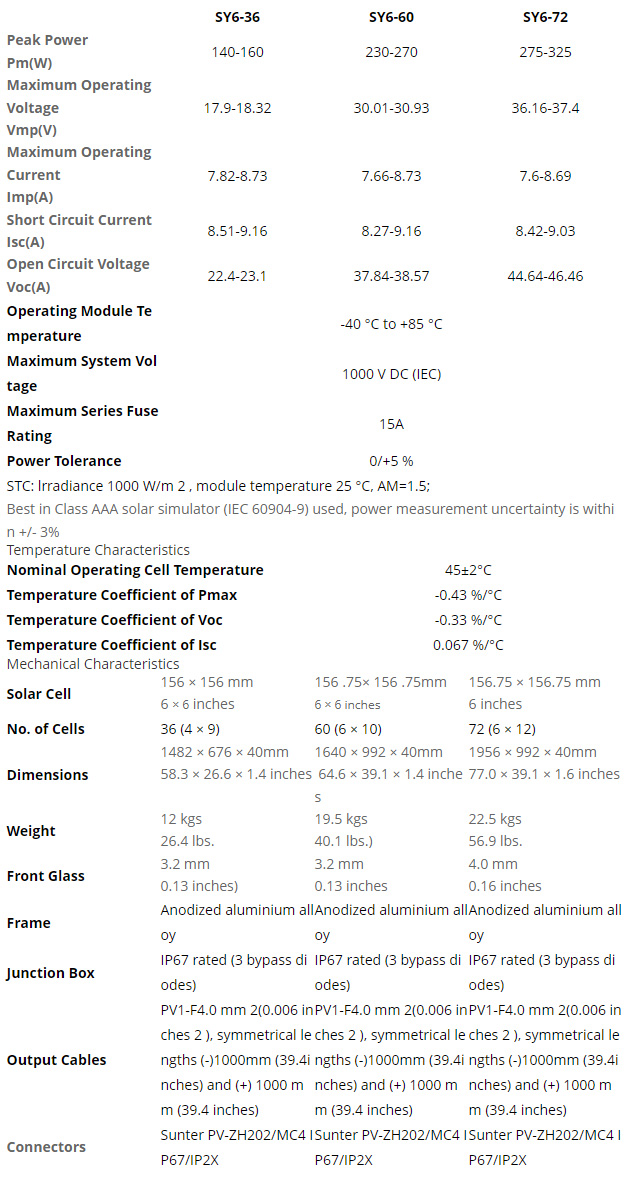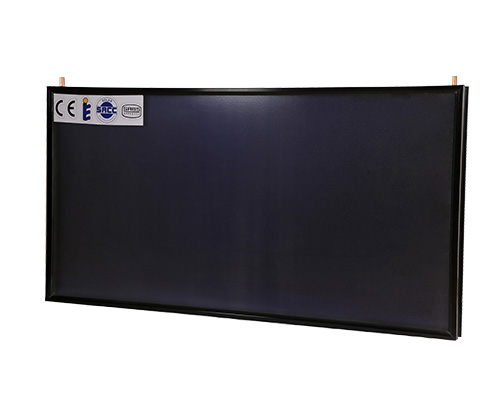1. Reduced Dependence on Fossil Fuels
It does not require fossil fuels so that can saved the cost from the fossil fuels ,less dependent on this limited and expensive natural resource.
2. Environmental Advantages
Solar power production generates electricity with a limited impact on the environment as compared to other forms of electricity production.
3. Matching Peak Time Output with Peak Time Demand
Solar energy can effectively supplement electricity supply from an electricity transmission grid, such as when electricity demand peaks in the summer.
4. Modularity and Scalability
As the size and generating capacity of a solar system are a function of the number of solar modules installed, applications of solar technology are readily scalable and versatile.
5. Flexible Locations.
Solar power production facilities can be installed at the customer site which reduces required investments in production and transportation infrastructure.
Monocrystalline Solar Panel Description
Solar photovoltaic (PV) are considered as the most cleanable & renewable energy, that convert energy from daylight directly into electricity, and are now becoming a leading role of the electricity generation mix worldwide.
Monocrystalline Solar Panel Features
High Module Conversation
Module efficiency up to 17.1% achieved through advanced cell technology and manufacturing capabilities
Excellent Weak Light
Excellent performance under low light conditions
Positive Tolerance
Positive tolerance of up to 5W delivers higher outputs reliability
New Sorting Process
System output maximized by reducing mismatch losses up to 2% with modules sorted &packaged by amperage
Extended Wind and Snow and Load Tests
Module certified to withstand extreme wind (3800 Pascal) and snow loads (5400 Pascal)
3bus Bar Design
Two bus bar design enhances cell reliability and reduces seri-es resistance for large fill factor

Monocrystalline Solar Panel Specifications





